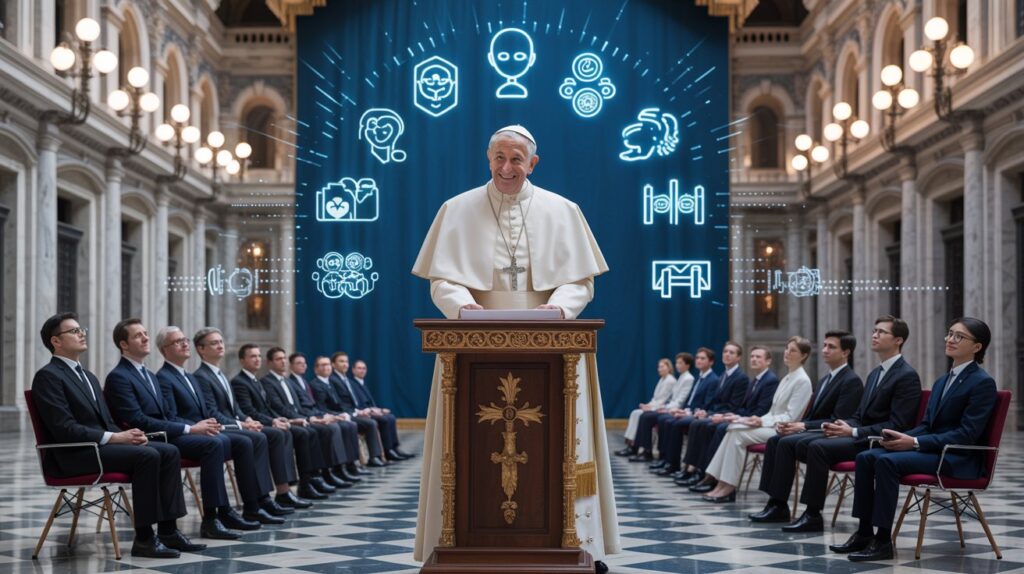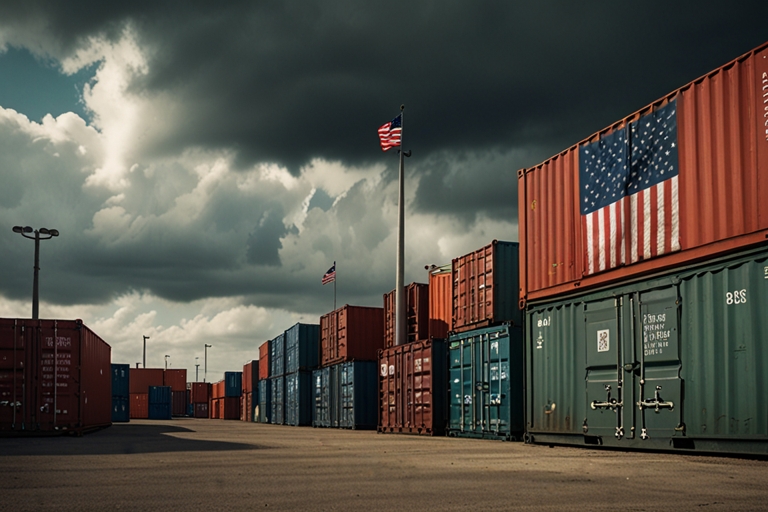
TL;DR
- Pope Leo XIV urged tech companies to develop AI based on an ethical criterion that respects human dignity.
- He emphasized that AI must consider the intellectual and spiritual well-being of people, especially children.
- The Vatican convened major AI leaders including Google, OpenAI, Meta, and academics from Harvard and Stanford to discuss AI’s societal and ethical implications.
- The Pope’s message highlights the need for responsible AI governance amid growing concerns over AI’s impact on jobs, misinformation, and privacy.
Pope Leo’s Call for Ethical AI Development
In a powerful message delivered on June 20, 2025, Pope Leo XIV called on technology companies developing artificial intelligence to adhere to an ethical framework that prioritizes human dignity in all aspects. Speaking to tech executives gathered at the Vatican, the pontiff underscored that AI should consider the well-being of the human person not only materially but also intellectually and spiritually (CNN).
The Pope cautioned against confusing access to vast data with true intelligence, highlighting how no previous generation has had such immediate availability of information through AI. His concern extended to the effects of AI on children’s intellectual and neurological development, stressing that society depends on allowing children to cultivate their God-given gifts.
The Vatican’s Role in AI Ethics
The statement came during the second annual Rome Conference on AI, a two-day event hosted inside the Vatican’s apostolic palace that brought together leading AI companies like Google, OpenAI, Anthropic, IBM, Meta, and Palantir, alongside academics from Harvard and Stanford and Vatican officials (CNN).
The Vatican has increasingly taken a vocal role on AI policy. In 2020, it helped craft the Rome Call for AI Ethics, which established principles emphasizing human-centric AI. Major tech firms such as IBM, Microsoft, and Qualcomm signed the document pledging adherence to its guidelines.
Pope Francis, Leo’s predecessor, had similarly called for an international treaty on AI to prevent a technological dictatorship, warning about AI-powered weapons, surveillance, and misinformation. He was also the first pope to participate in the G7 summit to discuss ethical AI frameworks with global leaders (Vatican News).
A Legacy of Social Teaching and Industrial Revolution Parallels
Pope Leo XIV, who took office last month, named himself after Pope Leo XIII, a leader during the 19th-century industrial revolution who championed workers’ rights to fair wages and unionization.
Leo XIV draws parallels between the industrial revolution and today’s AI revolution, proposing the Church’s social teachings as a framework to approach AI’s challenges in human dignity, justice, and labor.
He said, “In our own day, the church offers to everyone the treasury of her social teaching in response to another industrial revolution and to developments in the field of artificial intelligence that pose new challenges” (CNN).
AI Governance and Ethical Challenges
The Vatican’s conference included roundtable discussions on AI ethics and governance, attended by Archbishop Vincenzo Paglia and Archbishop Edgar Peña Parra, who hold significant leadership roles within the Holy See.
The focus was on balancing companies’ profit motives with social responsibility, especially as the United States considers legislative proposals that could weaken existing AI regulations, such as a bill from former President Donald Trump that would prevent enforcement of state AI laws for a decade (Politico).
Leo’s message stresses that tech leaders must respect what is uniquely characteristic of the human person as they build AI systems, warning against treating people as “systems of algorithms” (CNN).
Broader Implications for Society
The pope’s intervention comes at a critical moment when AI promises to boost productivity and advance research but also threatens job displacement, misinformation, climate impact, and expanded surveillance.
Leo noted, “AI has been used in positive ways to promote equality, but there is likewise the possibility of misuse for selfish gain or to foment conflict,” highlighting the dual-edged nature of the technology (CNN).
He called on the tech community to develop frameworks that defend human dignity, justice, and labor rights amidst the rapid AI transformation.
Vatican and AI Ethics Overview
| Detail | Information & Sources |
| Event | Second Annual Rome Conference on AI at Vatican (CNN) |
| Participants | Google, OpenAI, Anthropic, IBM, Meta, Palantir, Harvard, Stanford, Vatican officials |
| Vatican AI Ethics Documents | Rome Call for AI Ethics (2020), AI regulation advocacy (Vatican News) |
| Pope Leo XIV’s Focus | Human dignity, justice, labor, AI’s intellectual and spiritual impact |
| US AI Regulatory Environment | Potential weakening of state AI laws enforcement via federal bill (Politico) |
Conclusion
Pope Leo XIV’s call for an ethical AI framework represents the Vatican’s ongoing commitment to influence global AI policy grounded in human dignity and social justice. As AI technologies rapidly evolve, his message underscores the urgent need for responsible development that protects the intellectual, spiritual, and material well-being of all people, especially the vulnerable.






